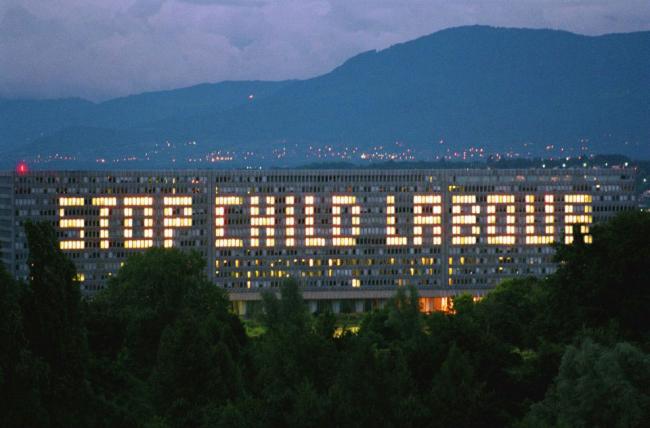10 Feb 2015

“Public authorities, communities and families all have their share of responsibility in fighting these abuses and they should act on these responsibilities,” Lindita Boshtrakaj, ILO National Programme Manager for the child labour project in Kosovo, said on Monday.
To illustrate the plight of families forced to send their children to work in the fields, ILO focused on the story of Sevdije Morina, a mother of five in the Kosovar village of Vrajak, whose children help her with the hard farm work – harvesting onions and grapes.
“I was forced to stop sending them to school so that they could work more in the fields and the vineyard,” she said, according to ILO, adding that the children often handle pesticides and dangerous tools.
Her 12-year-old daughter Haxhere said: “There have been cases when we’ve been injured when hoeing. And once I cut my hand with an axe. Since we did not have a car or other transportation, we had to walk the six kilometres from Vrajak to Ratkoc to take the children to hospital.”
Coming from poor families, some of them have to start to work as early as the age of 10, ILO said.
“Working on a garbage dump or in agriculture, they risk their health and even their lives. For many of them, combining school and work is a major challenge,” ILO said.
The UN agency also reported that for dozens of children collecting waste at a local dumpsite in Koshtova, a small village on the outskirts of the northern town of Mitrovica, working conditions may be even more difficult than for the mother of five and her children.
“They often hurt themselves when they collect the garbage or run to meet a new truck arriving at the dumpsite,” it said. “They rush because the winner of the race takes all and can fill his or her bag alone. Everybody accepts this tacit agreement to avoid fights between the children.”
The ILO reported that it and Kosovo’s Ministry of Labour and Social Welfare are working to find quick and adequate solutions, and so far, the project has led to the formulation of the Kosovo Action Plan for Prevention and Elimination of the Worst Forms of Child Labour.
The so-called Administrative Instruction 05/2013 on the Prevention and Prohibition of Hazardous Child Labour in Kosovo was approved in July 2014, which contains the updated Hazardous Child Labour List drafted with the help of the ILO.
And since March 2013, members of the Kosovo Chamber of Commerce are obliged to observe the ILO’s four fundamental labour principles, including the right to freedom of association and collective bargaining, and the elimination of child labour, forced labour and discrimination at work.
So far, according to ILO, 40 members of the Chamber of Commerce adopted codes of conduct on combating child labour in their supply chains and communities. In addition, occupational safety and health issues will be mainstreamed into the compulsory education (grades 8-9) and upper secondary school curricula.
The ILO is devoted to promoting social justice and internationally recognized human and labour rights, and helps advance the creation of decent work and the economic and working conditions that give working people and business people a stake in lasting peace, prosperity and progress.
Its four strategic objectives are: promote and realize standards and fundamental principles and rights at work; create greater opportunities for women and men to decent employment and income; enhance the coverage and effectiveness of social protection for all; and strengthen tripartism and social dialogue.
Photo: International Labour Organization (ILO)